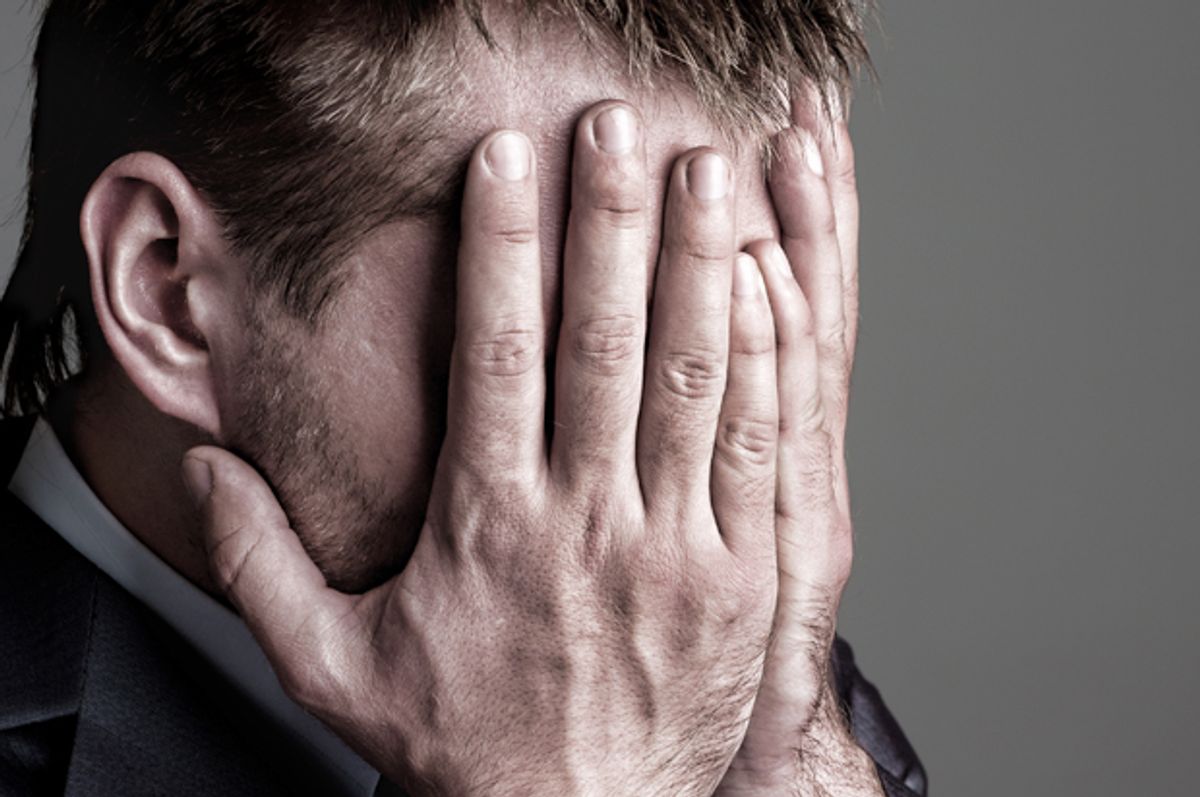Rape is a crime that thrives on the shame and silence of the victim. And if you're a male survivor of sexual assault, the challenges of being heard — and of being taken seriously — are unique. Too often, the idea that men can be raped is treated as a joke, or a commentary on their sexuality, or a fitting punishment for their own misdeeds. But now, what's being dubbed as the first facility of its kind has opened in Sweden — a rape center for men.
The center, which Metro UK says opened in Stockholm's Södersjukhuset hospital on Thursday, was first announced back in the summer, with the promise of offering "gender equal" services for men and boys. The hospital already has a round the clock walk-in clinic that serves between 600 and 700 patients annually. Speaking to Sweden's Sveriges Radio in July, Lotti Helström, a senior physician at the hospital, said that the new facility aims to dispel myths and stigma. "The general perception is that men cannot be raped," Helström explained, adding, "In studies, the health effects are shown to be greater for men, both in terms of physical health and mental health. There is a greater risk of a raped man getting post-traumatic stress disorder," in part because the topic is considered "extremely taboo."
The timing and location are especially apt, in a country that claims the dubious distinction of the highest rate of sexual assault in Europe. (A report in Sweden's The Local does note, however, that part of that high number may come from the fact that "the country records allegations in a different way to most other countries, tracking each case of sexual violence separately.") But throughout the world, sexual violence against men — in acts committed both by men and by women — is both astonishingly prevalent and disturbingly underreported.
Here in the U.S., the FBI only recognized that men can be rape victims in 2012. Last year, a report on "The Sexual Victimization of Men in America" concluded that "federal surveys detect a high prevalence of sexual victimization among men — in many circumstances similar to the prevalence found among women." Male sexual assault occurs across a spectrum, from intimate relationships to locker rooms to prison cells. In 2013, the father of a 13 year-old Colorado boy who claimed he'd been sexually abused by three members of his wrestling team was told blithely by the parent of one of the suspects, "This happens 1,000 times a day around the U.S."
The statistics on male prison rape, meanwhile, are varying and conflicting, but a 2012 report estimated that "More than one-third of gay and bisexual male inmates said that they were victimized by another inmate. By comparison, only 3.5% of straight male inmates reported being sexually assaulted by other inmates." Oh, only. There are nearly 1.5 million men in America's penal system. The incidence of prison sexual assault is, as Jill Filipovic wrote in the Guardian in 2013, "horrifying."
Meanwhile, in the UK earlier this year, Survivors UK, a support organization for men who've experienced sexual assault, found its funding from the Ministry of Justice victims’ fund withdrawn. The Guardian reported in August that it is now in danger of closing — "despite a 120% increase in male victims of sexual violence in the capital last year." And just earlier this month, a judge ordered that the female babysitter who sexually abused a male child in her charge was given a suspended sentence after declaring, "It was quite clear he was a mature 11-year-old."
It's pretty hard to stop a problem that isn't recognized as a problem. To end sexual violence against men — just like ending it against women — it has to first be acknowledged. And in one corner of Scandinavia, now it is. It's a start.

Shares